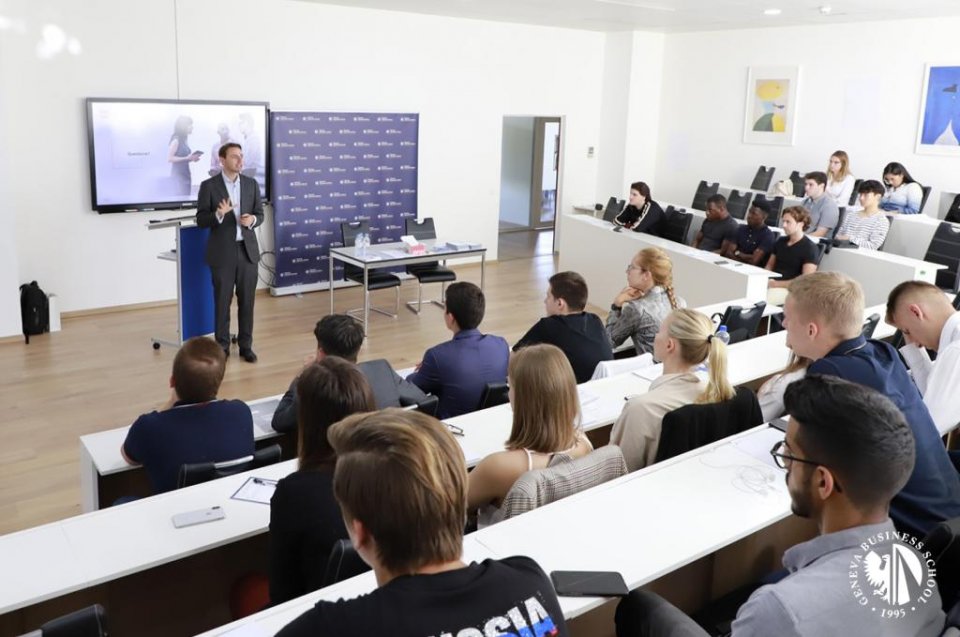A Spotlight feature.
How to future-proof your career for a post-pandemic recovery
In the aftermath of a global pandemic, the hunger in the jobs market is palpable. Women, in particular, have been made redundant in unfathomable numbers, unemployment is peaking even in moderate economies, and households are waning under the strain of lost income and lost prospects for new jobs, better positions, or better-paying jobs.
A post-pandemic economy calls for an agile and multi-talented workforce, more adaptive technologies, and bold moves in entrepreneurship. Add to this the existing skills gap experienced by mid-level to senior management and it is clear that some lean thinking and skills development will be required to future-proof organisations and indeed individual careers.
In a recent McKinsey study, 87% of executives were either experiencing skills gaps in their workforce or expected them within a few years and less than half of them were clear about how to overcome the problem. This is where upskilling in particular can play a significant role. Talent is hard to find, so recruiters have two options, reskill your current workforce or hire from outside the organisation. Individuals can build new skills while working and apply new knowledge to move up within their own organisation or switch to a new career path. Either way, learning to do more has never been a better idea.

Women went back to school in record numbers
Looking back on 2020, it is clear that the economic fallout from Covid-19 had a disproportionate impact on women. According to a recent report by Citi Bank, of the 44 million expected global redundancies, 31 million are women. ‘The good news is that despite challenges women face in the pandemic, such as a greater share of job losses, their enrolment in business school did not decline overall,’ says Elissa Sangster, Forté chief executive. A surge in local MBA applications in 2021 also highlighted the transition of many women to studying close to home while reigniting their careers after the setbacks of 2020. Flexibility, convenience, and tailored programmes were sought out by women looking to recoup their losses by returning to study in 2021.
Remote workers stabilised the economy in 2020
Spain experienced an unemployment rate of 16.1% at the peak of the pandemic lockdowns in 2020. The near-extinction of tourism and services sector activity heavily contributed to job losses of 622,600. With a slow upturn in jobs emerging in the fourth quarter, remote working proved to be the source of relief in the labour market. Learning to work with remote teams, on multiple platforms, and in different time zones are exercises in agility that have been essential to survival in these times of uncertainty and burgeoning globalisation.
Using digital platforms and project management tools can essentially give you an edge that was previously considered the domain of creatives, freelancers, and gig workers. As many managers now realise, their knowledge workers can be more productive from home, lower organisational costs and staff turnover, gain a better work-life balance, and tailor their working hours to international time zones. Learning to manage remote teams is a skill worth acquiring and now more than ever will become a key tool in keeping your business on track.

Entrepreneurs can resuscitate the economy in 2021
Entrepreneurship is an empowering experience that can benefit all levels of society. On an individual level, it empowers women and men to have flexibility in their schedule, more control over their future and allows them to follow their passion as their main job. At a social level, it brings diversity and innovation to industries, be they products or services. And, on a global level, entrepreneurship is the fuel that powers economies. Many entrepreneurs were created during the global pandemic, some derived new business models as necessity birthed their start-ups, such as digital versions of bricks and mortar businesses, online learning platforms, and academies and contactless tools were in demand by the masses.
What skills will be in demand in the future?
To excel in the future economy, recruiters worldwide believe, they will need to be multifaceted so that they can be both good collaborators and critical thinkers. They place the greatest importance on having solid communication and analytical skills, followed by improving their leadership and complex problem-solving skills.

The best talent will have digital, tech, and leadership skills
Digital transformation is seeping into every industry and at a faster rate than ever before. Digital skills alone make up 70% of the fastest-growing skills worldwide, but interpersonal skills are becoming just as important. Technological coding and interactive skills are expected to rise by more than 50%, and high-level social and emotional skills associated with leadership and initiative-taking (also known as soft skills) will see an expected rise of more than 30%.
The gig economy will continue to thrive
Workers with family obligations, or who lack the time to quit their day job to launch a new career must look to flexible and often online programmes for upskilling and ways of learning new skills on the job. For example, short courses through Ubiqum or Udemy in programming can increase a person’s skill base and build new foundations while they take on contract work through online platforms such as Field Nation or WorkMarket.

Future-proof education is key
Educators at all levels should combine curricula to include the hard skills needed in the future, such as coding and artificial intelligence, and the soft skills that today’s workers deem to be important for advancement, including communication, collaboration, creativity, problem-solving, and critical thinking.
Programmes designed to grow a mix of soft and hard skills while incorporating hybrid learning methods, time management, mindfulness, and mindset along with leadership skills such as remote team management, emotional intelligence, and resilience only come from a holistic approach to learning, upskilling and professional development.
Postgraduate studies in International Management or Business Administration are a well-intentioned pursuit but it’s the mentorship, leadership development and networking aspects of a programme where an edge can be developed that will get you back in the game and feel more secure in the murky waters of a global recession.
Flexible and innovative programmes will fundamentally develop the skills needed to work long term in the new normality by seamlessly bridging the gaps between remote workers, cross-cultural communication, and the latest digital tools to work across global business units.
Educational institutions that rethink how classes are offered to appeal to people’s different learning preferences, including combining offline and online methods and developing approaches for creating lifelong learning habits will provide the best programs for tomorrow’s knowledge workers.
Geneva Business School has innovative programs from Bachelor’s to Doctorate levels and endeavours to make project-based learning the centre of every class, to develop each student’s ability to not only work in teams and business units but also to develop the soft skills required to manage in the real world of work.
Their online programmes specialise in flexible executive education at Master and Doctorate levels, meaning students can develop their next career without sacrificing income or time. Leadership development, mentorship and networking opportunities are at the centre of these programmes and ensure the student gains vital insight to solve current business problems in current workplace scenarios.
Post-pandemic education must reflect the same scenarios one will encounter in the modern workplace. Hybrid classrooms, remote teams, and coordinating projects across geographical locations, multicultural backgrounds, and honing individual skill sets, all make for a well-rounded and agile graduate, ready to take on the challenges of an increasingly uncertain world.
To learn more about Geneva Business School and its future-proof programmes, get in touch here.
ALSO READ: The Age of Cooperation – women leaders reshaping the world in the face of a pandemic


